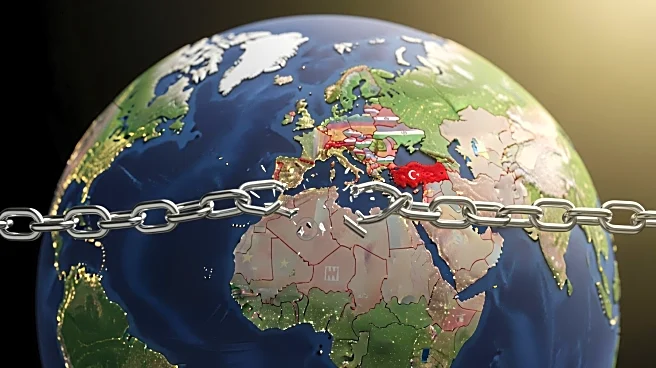What's Happening?
Lukoil, Russia's second-largest oil producer, has declared force majeure on its oil shipments from the West Qurna 2 field in Iraq. This decision follows U.S. sanctions imposed on the company as part of
efforts by President Trump to pressure Moscow to end its involvement in the Ukraine conflict. The force majeure allows Lukoil to bypass certain contractual obligations, although it does not necessarily halt shipments from the field, which was producing over 480,000 barrels per day as of April. Iraq's state oil marketing company, SOMO, has canceled three Lukoil cargoes scheduled for November, and payments to Lukoil have been frozen. Lukoil had previously announced plans to sell its international operations, including West Qurna 2, but a potential sale to Gunvor Group fell through after U.S. Treasury criticism.
Why It's Important?
The declaration of force majeure by Lukoil highlights the significant impact of U.S. sanctions on Russian oil companies and their global operations. This move could disrupt oil supplies from Iraq, affecting global oil markets and potentially leading to increased prices. The sanctions and subsequent operational challenges for Lukoil underscore the geopolitical tensions between the U.S. and Russia, with broader implications for international energy security and market stability. The situation also reflects the complexities of international business operations amid geopolitical conflicts and sanctions.
What's Next?
The immediate future may see further disruptions in oil shipments from Iraq, affecting global supply chains. Lukoil's efforts to divest its international assets could face additional hurdles, especially with potential buyers wary of U.S. sanctions. The situation may prompt further diplomatic engagements or adjustments in U.S. foreign policy regarding sanctions. Additionally, Iraq's response to the halted shipments and frozen payments could influence its future dealings with Russian companies.











